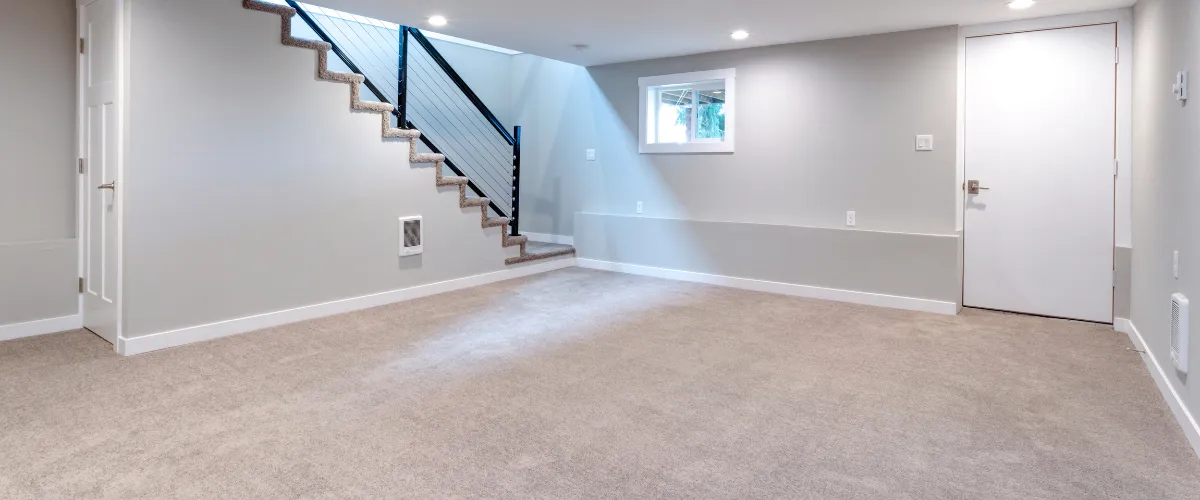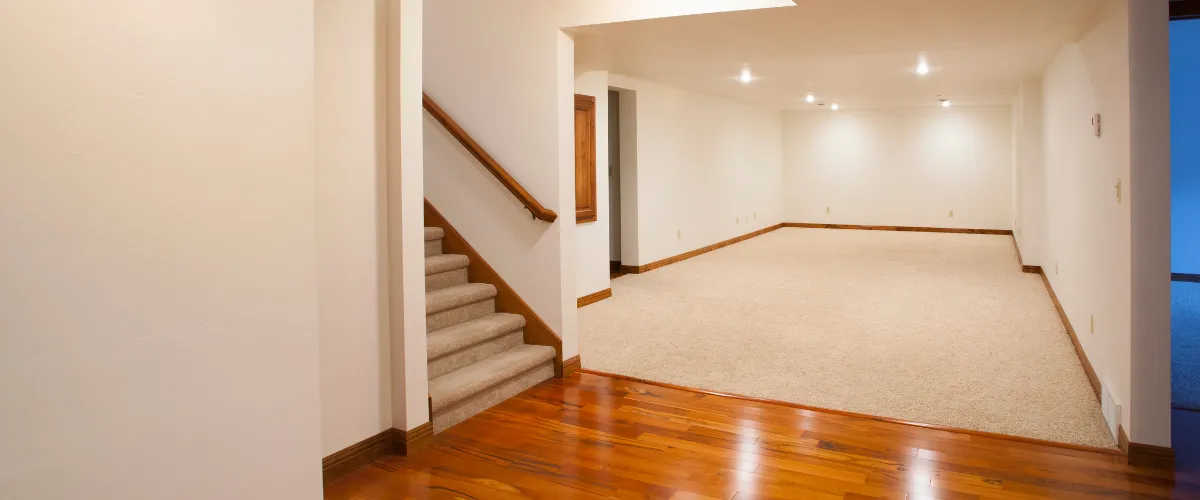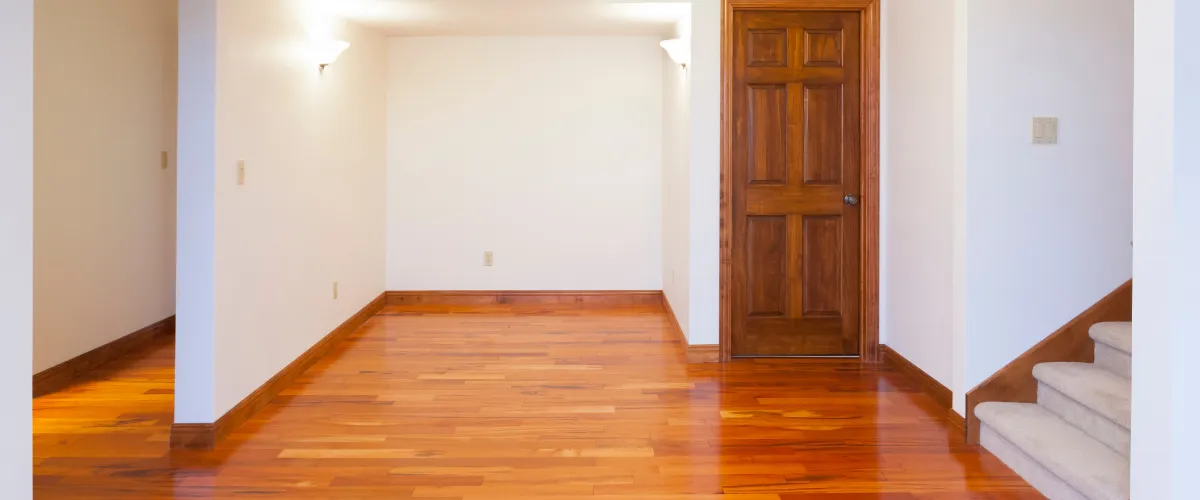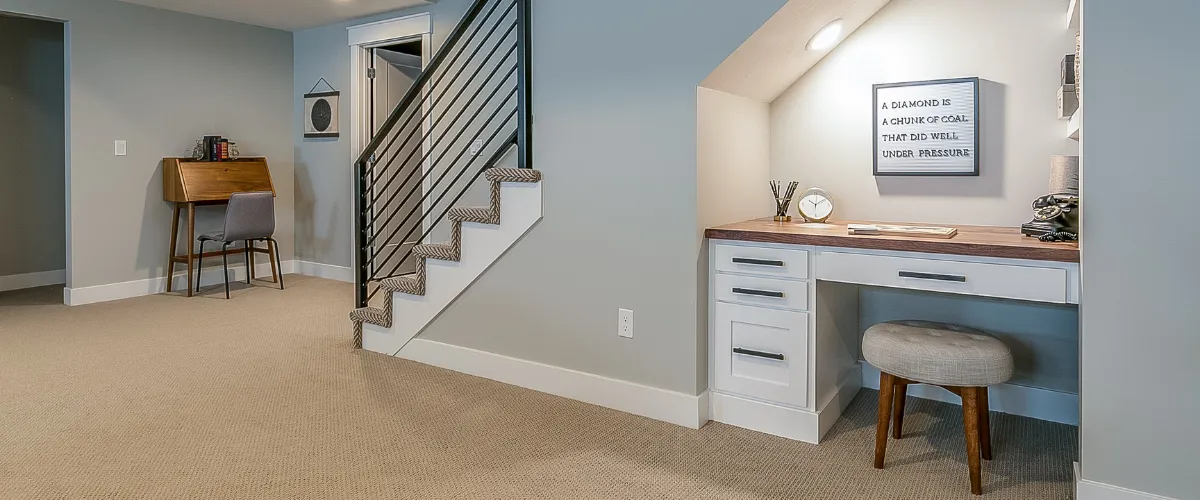Flooring For Basements That Flood
Having a basement that floods can be a big problem. One fact to know is that the right flooring can help. This article will show you the best options, like vinyl flooring and ceramic tiles, for basements that flood.
Keep your basement dry and stylish!

Understanding Basement Flooding
- Common causes
Heavy rainfall and snow melt often lead to basement flooding. Blocked or failed sewer pipes can also cause water to enter your home. Poor drainage around basement walls adds to the risk.
Many homeowners face flooding if their sump pump fails or if there are cracks in the concrete floor.
Leaks from appliances like washing machines add to the problem. In areas prone to natural disasters, such as hurricanes, basements become vulnerable too. Over time, these issues can damage flooring in flood-prone basements, leading to costly repairs.
It’s important for homeowners to choose the right waterproof flooring options for their basements.
- Impact on flooring choices
Knowing why basements flood helps homeowners make smart choices for basement flooring. Floors in flood-prone areas need to handle water well. This means picking materials that can stand up to moisture and not get ruined easily.
Some good options include luxury vinyl plank flooring, rubber flooring, and ceramic tiles. These floors do well in wet conditions because they are made to resist water damage.
Choosing the right type of floor is key for basements that might flood. Vinyl, for example, has a waterproof core which makes it an excellent choice. Rubber mats can also protect against water while adding comfort underfoot.
Ceramic tiles offer a mix of durability and style, making them highly resistant to floods as well. Homeowners should avoid hardwood or carpet since these materials don’t withstand moisture very well.

Best Waterproof Flooring Options
- Vinyl: Types and benefits
Vinyl flooring is a top choice for basements prone to flooding. Available in luxury vinyl tile (LVT) and sheet vinyl variations, LVT bears a striking resemblance to authentic wood or stone, while exhibiting an improved resilience to water.
Delivered in extensive rolls, sheet vinyl reduces the possibility of water permeation due to its minimal seams. Both categories are easily maintainable and can be installed over a concrete subfloor with ease.
Vinyl flooring provides an economical solution with effective water resistance, making it an ideal fit for flood-prone locations.
Vinyl is a homeowner favorite due to its waterproof nature and resistance to mildew. This flooring choice is capable of withstanding flood-induced damage, marking it as an optimal solution for moisture-susceptible basements.
Additionally, the extensive array of styles ensures you can match your home aesthetic while maintaining practicality.
- Ceramic Tiles: Durability and style
Moving on from discussing the benefits of vinyl flooring, ceramic tiles offer a durable and stylish flooring option for flood-prone basements. They are resistant to water and moisture, making them an ideal choice for areas with potential flooding issues.
They are also stain-resistant, which makes maintenance easier in damp environments prone to mildew and mold growth.
Ceramic tiles come in various designs and styles, allowing homeowners to choose a visually appealing option that suits their preferences while ensuring longevity and practicality in the face of potential flooding.
With their low maintenance requirements, these tiles provide an excellent solution for homeowners seeking resilient yet stylish basement flooring.
- Rubber Flooring: Comfort and resilience
Rubber flooring is a top choice for flood-prone basements, as it’s water-resistant and durable. It’s specifically designed to handle moisture issues commonly found in such areas, making it an ideal option.
The material offers slip resistance, ensuring safety for homeowners in potentially hazardous conditions. Moreover, its resilience makes rubber flooring suitable for withstanding flood damage and minimizing the risk of mold and mildew.
Rubber flooring also provides comfortable footing while acting as a sound insulator, addressing multiple concerns that homeowners have when choosing new flooring for their flood-prone basement.
This type of waterproof flooring usually comes in large rolls or interlocking planks, offering options that are easy to install with very few seams – reducing the chances of water seepage through the floor.
These qualities make rubber flooring a practical and affordable option for those prioritizing functionality and ease of maintenance in their moisture-prone spaces.
Installation Tips for Flood-Prone Areas
When installing flooring in flood-prone areas, ensure proper sealing and waterproofing of the subfloor. Consider using loose-laid materials for easier removal and reinstallation after flooding.
Professional installers can offer guidance on selecting slip-resistant options suitable for flood-prone basements.
- Precautions and best practices
When installing flooring in flood-prone basements, make sure it’s water-resistant and can withstand potential damage. Prioritize waterproof materials such as vinyl, ceramic tiles, or rubber flooring to reduce the risk of damage.
Use professional installers for careful installation to prevent future issues related to water seepage.
Pay attention to slip-resistant properties and sound transmission when selecting the flooring for flood-prone areas. Consider using area rugs on top of the floor for added protection while maintaining a visually appealing space.
Finally, choose loose-laid or adhesive-free installation methods to facilitate removal and replacement if needed.

Top Manufacturers of Waterproof Flooring
- Shaw Industries
Known for eco-friendly options and innovative designs, providing high-performance flooring solutions.
- Mohawk Industries
- Armstrong Flooring
- Tarkett
- Mannington Mills

Why Choose Our Expert Team
Our team has been providing professional flooring services for years, ensuring top-quality results. By working with the best, you save money over time. Ready to start? Contact us at (402) 661-0910.
